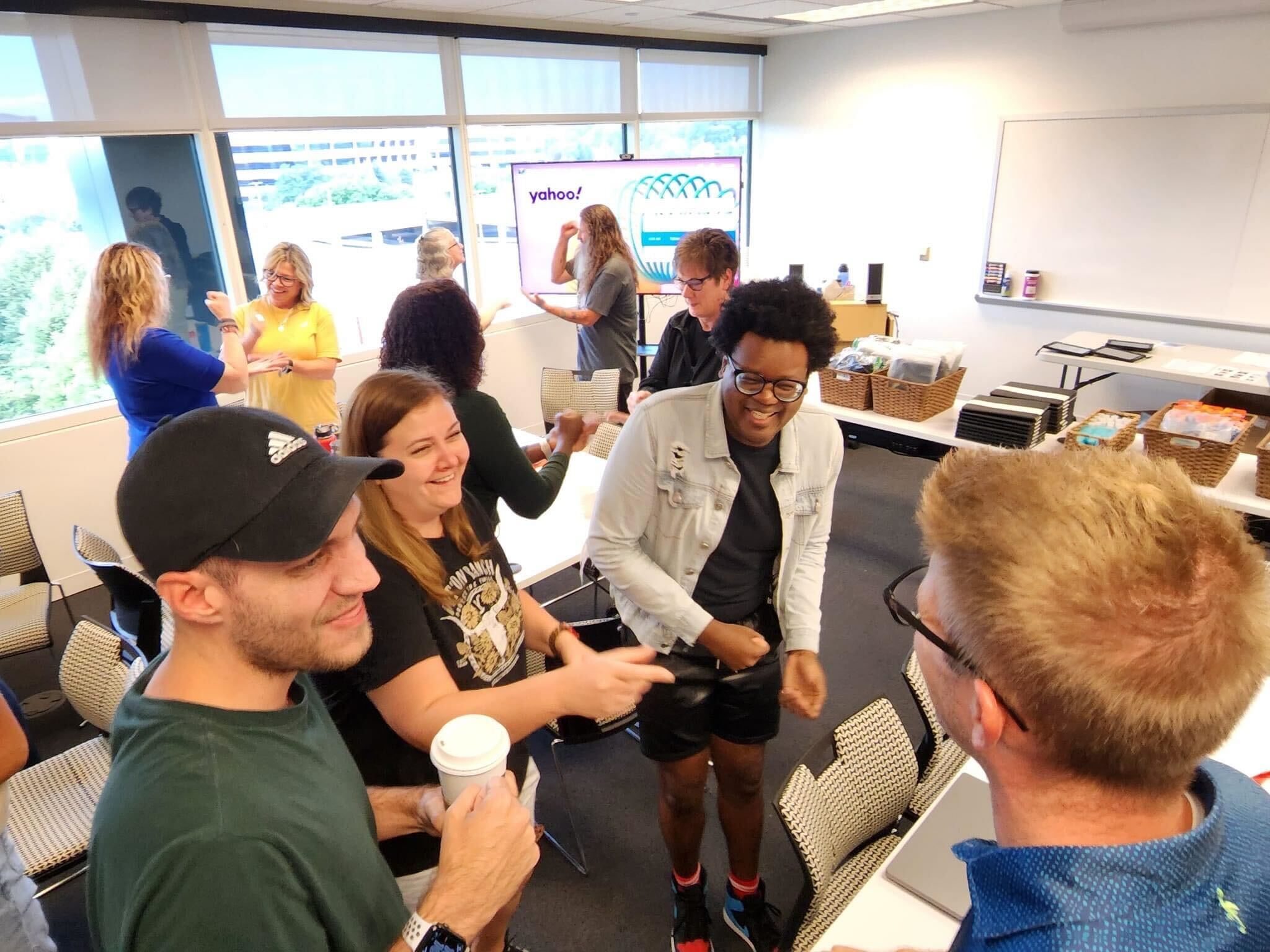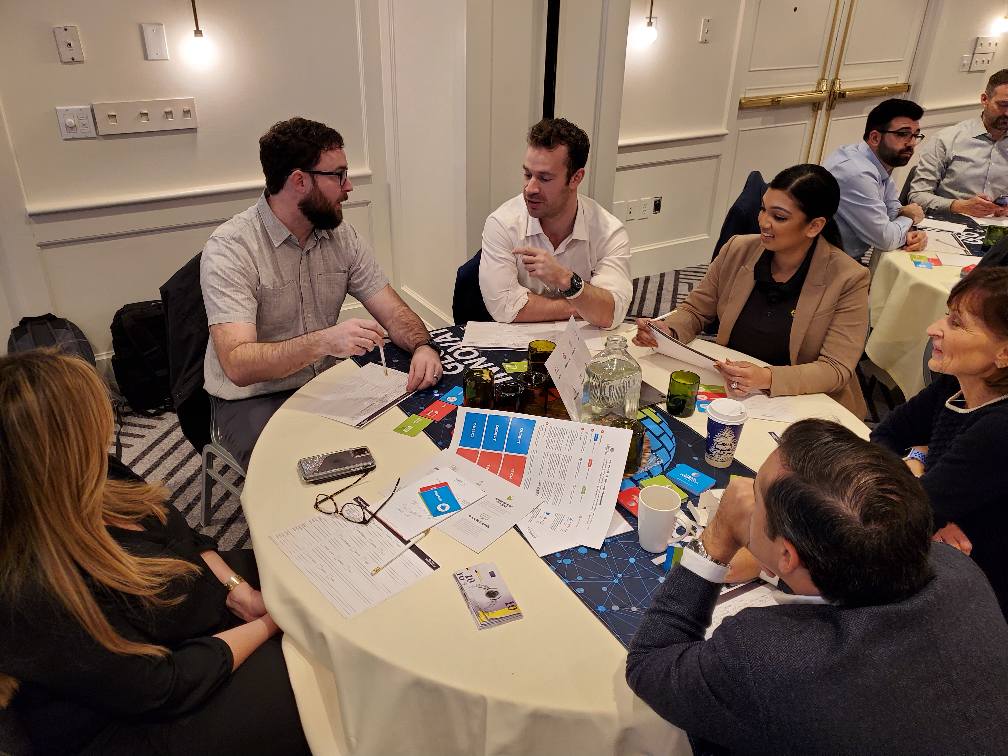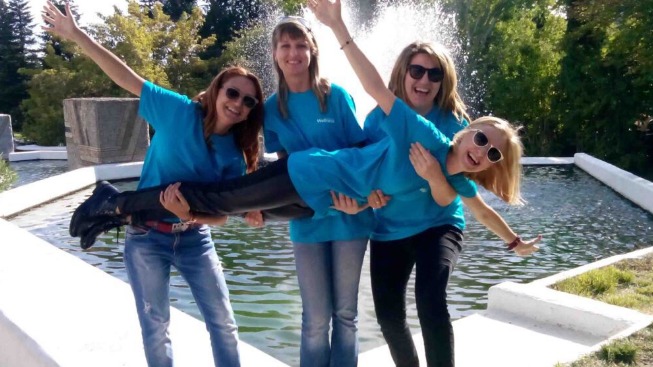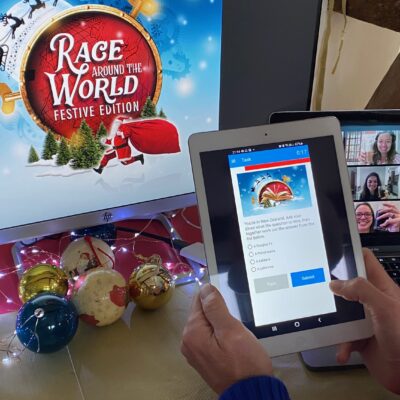Why Team Building Doesn’t Work
As a leader in your organization, you’re likely always looking for innovative ways to strengthen employee relationships. Creating a strong workplace culture that encourages teamwork is essential for increasing productivity and improving employee engagement. However, your workforce might not always see eye to eye with leadership when it comes to team building. Some employees may feel it’s nothing more than a chore while others might think that team building will not solve the underlying issues that are affecting workplace relationships. It may lead them to really question “does team building work”?
The truth is that your workforce may very well be right if you’re not employing your team-building strategies effectively. Proper team building needs to be carefully executed and aligned with the specific needs of the workforce that builds your success.
This article will provide you with useful pointers for creating a team-building strategy that works. With these tips, you’ll be able to start fostering strong relationships between your employees and building a foundation for your organization’s continued growth and success.
What’s the Purpose of Team Building?
The idea behind team building is prevalent in pretty much all facets of society — goals are more easily accomplished when we work as a team. Team building can help strengthen interpersonal relationships within your workforce. This interdependence motivates employees to work together effectively toward a common goal.
Additionally, it can help to develop individual employee strengths while also helping them overcome their weaknesses. This can be achieved through a variety of team-building activities, ranging from brainstorming and problem-solving exercises to puzzles, games, and fun outdoor activities.
To experience the true benefits of effective team building, these activities and exercises should become an integral part of your organization’s culture and your team’s mindset. One-off exercises will only go so far, but creating a long-term team-building strategy will help you determine which kinds of activities are best suited for your team.
Keep in mind that no two teams are the same. Each team has its own specific strengths and weaknesses, and there are no cookie-cutter solutions as to how you should structure your team-building strategy.
3 Reasons Why Your Team Building Activities Are Failing to Deliver Results
The concept of team building is most likely nothing new to you and the other leaders within your organization. Over the last decade, it’s become an essential aspect of employment, and many companies consider it a top priority for talent acquisition and employee retention.
However, you may have noticed that your team-building strategy is not delivering positive results. Here are the three main reasons why that may be the case.
- You don’t understand your audience. Team-building activities often fail to deliver results because you don’t understand the individual interests and personalities of your team members. Certain games might be fun and interesting to some while others might feel embarrassed or uncomfortable participating. For example, teams that are more numbers-driven may not enjoy an artistic activity as much as a group of graphic designers. Getting to know your audience before executing a team-building activity is key to keeping employees interested and engaged.
- You’re making team-building feel like a chore. It’s highly unlikely that every member of your team will be in the mood to participate in every team-building activity. Maybe they are in the middle of a big project, but they have to step away to attend a mandatory team-building activity. Regardless of how fun or useful it may be, that person will not be engaged and might even ruin the experience for those who are excited to participate. Keeping your team-building activities voluntary will ensure everyone walks away feeling happy and looking forward to the next event.
- You’re not consistent. One-off events or activities can be successful and fun on their own, but organizing subsequent events every so often will make your team feel that you care about them and their wellbeing. Making team-building activities an ongoing thing in your organization will ensure that those bonds and relationships that have been forged during past events continue to remain strong.
How Team Building Improves Your Organization
Once you’ve identified the areas you want to improve within your organization, you can begin to develop an effective team-building strategy. Some of the most common areas that companies tend to focus on when determining which activities they would like to use to foster a sense of camaraderie include:
Reducing Work-related Stress
No workplace is without its stressors, and finding a way to lighten the mood and relieve some of the stress they cause is generally a great way to begin your team-building efforts.
For example, fun and engaging activities that help create positive shared experiences are also ideal for combating burnout. In fact, a 2017 survey by CareerBuilder found that high-stress levels in the workplace lead to poor health conditions such as weight gain, weak immune system, aches, and pains, as well as depression. Offering teams opportunities to let loose helps to alleviate some of that stress, thus increasing productivity and supporting their wellbeing.
Improving Collaboration
Not everybody in your workplace needs to be the best of friends, but they should get along with one another for your organization to meet its goals. Honing on ways to get your team members to better connect through team-building activities is an effective way to ensure that co-workers remain friendly and respectful.
Strengthening Communication
Completing tasks that require a group effort is always more difficult when communication is poor. This is especially true in virtual and hybrid work environments. When the world transitioned to digital means of communication, the lack of emotional feedback and empathy we were used to forced us to reevaluate how we talk and exchange information.
In the digital world, clarity is key to preventing miscommunication and misunderstandings. So, providing your workforce with an opportunity to develop their communication skills — both in virtual and face-to-face situations — can be pivotal to completing group tasks successfully.
Effective Team Building Activities
While there are many different ways to work towards group cohesion, some tactics have been found to work particularly well. Depending on what results you want to achieve, here are some creative ideas you may want to include in your team-building strategy.
Trust Building
Having everyone on your teamwork toward a selfless goal helps bring down walls and barriers between people. That’s why charitable events have shown to be an effective mechanism for trust-building and strengthening bonds between individual team members. This is also true for large organizations that are made up of many teams that rarely get a chance to interact or communicate with one another.
Relationship Building
Your employees don’t necessarily need to be the best of friends, but you should strive to create an inclusive work environment that encourages diversity and openness. If you want to help your team build stronger connections, consider organizing events that get people to exchange personal experiences and stories in a relaxed setting.
Throwing a virtual mixology party is an excellent opportunity for your team members to socialize, laugh, and have fun despite the physical distancing. Whether you have a small team or one that is scattered across the globe, these types of events are designed to bring people together and help them discover how much they bring to the team as a whole.
Problem Solving
Problem-solving is a soft skill that is learned and perfected over time. However, according to research by Payscale, 60% of managers say that new college graduates entering the workforce lack this vital ability. If some or most of your employees fall into this category, your team-building strategy should include problem-solving activities that focus on developing analytical thinking and strategic planning skills.
Empowering Good Leadership
One of the core objectives of any successful team leader should be to unite individual employees into a cohesive team. Whether or not the team will be successful will depend on the leadership style of the person in charge of the group.
A 2020 survey by Society for Human Resource Management found that 84% of US employees blame poorly trained managers for unnecessary work and stress. In addition to that, 57% think that managers could benefit from training on how to be better people managers.
With this in mind, consider organizing team building events that are aimed at enhancing your managers’ leadership skills. Game of Drones might be the perfect activity for that because it requires your entire team to collaborate and coordinate in order to overcome numerous obstacles before reaching the finish line.
Improving Communication and Collaboration
More often than not, poor communication is to blame for most of the problems that happen in an organization. If your team is unable to communicate clearly, this can lead to misunderstandings, missed deadlines, and low-quality results, which will ultimately cause your clients to feel unhappy with your business.
One effective way of addressing these concerns is to implement team building activities that focus on improving team-wide communication. These types of activities will not only improve how your team members exchange information, but could also help you mitigate potential conflicts that could stifle productivity or profitability.
Still Questioning Does Team Building Work?
There are so many different ways to build a stronger sense of togetherness within your organization, and many of them can be a lot of fun. And by now, you shouldn’t be wondering “does team building work”.
Remember that all of your activities should be inclusive of every member of your team, so consider any disabilities or unique needs of your employees before planning anything. Always take into account that your team members have families, children, and lives outside of the workplace, so respect should be a priority in any team-building strategy.
Regardless of your role in your organization’s leadership, you can help everyone attain business goals by following effective team-building practices. For the best team building games for work, consider TeamBonding. We have over 25+ years of experience doing corporate events, and we have a huge selection of team building events for any occasion. So get in touch with us today and engage your team with TeamBonding.
Get more insights in our newsletter:
* every subscription supports charity!
Plays well with these activities.


 Unlock exclusive resources for better teams. Every subscription supports charity!
Unlock exclusive resources for better teams. Every subscription supports charity!
Create Your Free Account
Get exclusive access to new programs from the TeamBonding Lab, save your favorite ideas, and track your upcoming events.
Already have an account? Login











